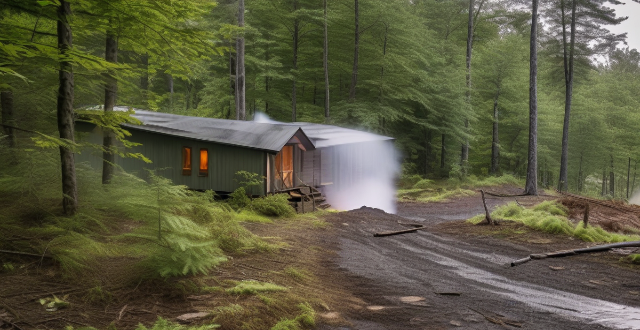Deforestation and forest fires significantly contribute to global warming by increasing greenhouse gas concentrations, altering Earth's reflectivity, and disrupting natural carbon cycles and ecosystem services.

The Role of Deforestation and Forest Fires in Global Warming
Deforestation
*Impact on Carbon Storage*
- Loss of Carbon Sinks: Trees absorb carbon dioxide from the atmosphere through photosynthesis. When forests are cleared, this carbon storage is lost.
- Release of Stored Carbon: Trees hold large amounts of carbon in their biomass. When they are cut down or decompose, this carbon is released back into the atmosphere as CO2.
*Contribution to Greenhouse Gases*
- Increase in Atmospheric CO2: Deforestation directly increases the concentration of carbon dioxide, a potent greenhouse gas.
- Methane Emissions: Wetlands and other areas that are often logged can produce methane, another strong greenhouse gas.
*Alteration of Albedo and Local Climate*
- Change in Reflectivity: Darker, exposed ground from deforested areas absorbs more sunlight than the reflective cover of leaves.
- Local Climate Changes: Less evapotranspiration from trees can alter local water cycles and temperatures.
Forest Fires
*Immediate Release of Greenhouse Gases*
- Burning Biomass: Fires consume trees and vegetation, rapidly releasing their stored carbon as CO2.
- Emission of Other Gases: Besides CO2, fires produce carbon monoxide, methane, and nitrogen oxides, which also contribute to global warming.
*Long-Term Impact on Carbon Cycle*
- Damage to Carbon Uptake: Fires destroy the capacity of forests to act as carbon sinks by damaging or killing trees.
- Soil Changes: Fires can lead to soil degradation, reducing its ability to store carbon and affect future forest growth.
*Effects on Albedo and Ecosystem Services*
- Albedo Changes: Similar to deforestation, burnt areas generally have lower albedo, increasing heat absorption.
- Loss of Ecosystem Services: Forests provide services like air purification and climate regulation, which are compromised by fires.
Cumulative Effects
*Positive Feedback Loops*
- Ice-Albedo Feedback: Warmer temperatures lead to ice melt, reducing albedo and causing more heat absorption, further warming the planet.
- Carbon-Cycle Feedback: As temperatures rise, more fires and deforestation occur, releasing more CO2, which in turn warms the planet more.
*Global Implications*
- Climate Patterns: Altered temperature and precipitation patterns due to increased greenhouse gases can affect ecosystems globally.
- Biodiversity Loss: Both deforestation and fires reduce habitats, leading to species extinction and biodiversity loss.
In conclusion, both deforestation and forest fires play significant roles in exacerbating global warming by increasing greenhouse gas concentrations, altering Earth's reflectivity, and disrupting natural carbon cycles and ecosystem services. Mitigating these effects is crucial for climate change strategies.